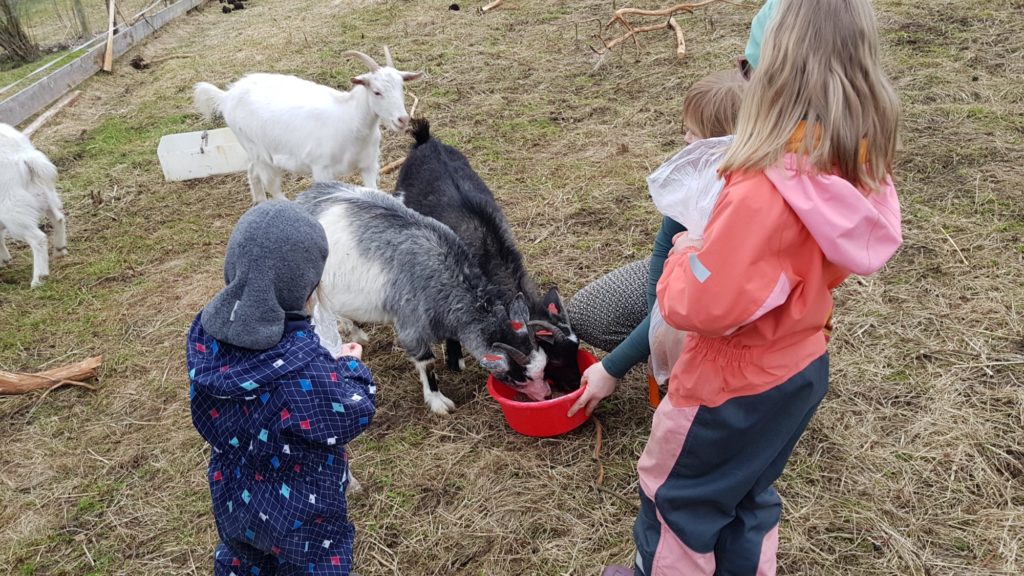Social innovation has been embraced as an emergent approach to rural development. The concept is applied to different fields of activity (agriculture, forestry, delivery of services, social integration, etc.) in relation to different societal challenges (environmental conservation, creation of employment, enhancement of governance, poverty, etc.) and in different rural contexts (in terms of marginalisation, economic development, resources, etc.).
Social farming is one the most significant examples of social innovation in rural areas. Social farming is a response to changes in agriculture and rural lifestyle in communities across rural Europe not only in how they are affected by the principle “Think globally, act locally” but also following its inverse: “Think locally, act globally”.
This WG aims to explore the understanding of social innovation in general and social farming in particular as drivers of transformation and change in rural areas: from examining how concrete examples of social innovation transform social practices in agriculture, forestry, and rural development to discussing the deeper meanings that those changes may have in different socio-cultural contexts. The WG engages with the themes of the Conference in the exploration of how rural futures might look, particularly from the point of view of the diversity of social innovation in rural areas and in understanding how social practices are being reconfigured in rural communities.
Topics: Within the spectrum of social innovations, particular attention is paid to social farming, recognising the necessity for finding new sources of income for agricultural farms and increasing demand for care services in rural areas. Some of the sub-themes and questions that we expect to explore are:
- The type of rural transformations driven by social innovation. How is social innovation transforming rural areas? Is it re-shaping traditional activities in rural areas or does it mean a structural change and transformation of the communities and spaces? Do different types of social innovation have the same types of impacts? Are they delivering different types of rural futures, and if so, what makes the difference?
- Contexts and development of social innovations. How do different types of rural spaces drive different types of social innovation? What is the relationship between rural diversity and social innovation – does one lead to the other?
- Diversity of social farming systems (national frameworks, opportunities and challenges, actors, etc.). What is social farming and what are the key features of social services on care farms? How is care farming integrated into the social welfare system in rural areas? What are the key factors influencing the emergence and development of care farming? Is it possible to create an international system of care farming at an EU level?
Format: Traditional workshop with at least a couple of panels or sessions. In each session, 3-4 papers addressing similar issues are presented by authors in advance of opening to the floor for Q&As and wider discussion.
Abstracts
Working Group Session 1 Wed 09:00 – 10:30
- Elena Pisani – A new framework for evaluating social innovation and its impacts in marginalised rural areas
- Diana Valero – Social innovation in marginalised rural areas: exploring diversity in the reconfiguration of social practices.
- Alice Ludvig – Policies for social innovation: The example of social farming
- Diana Valero – Tackling depopulation trough social innovation: diversity of topics and types of expertise.
- Verena Gramm – Providing childcare services as a driver of socio-cultural changes for women farmers – A case study of social farming in South Tyrol, Italy
Working Group Session 2 Wed 11:00 – 12:30
- Talis Tisenkopfs – Social Innovation and Learning in Direct Marketing
- Eugenia Petropoulou – Social Innovation and the agri-food system: a literature review
- Judith Janker – The sustainable agricultural social system. A social science framework to grasp the diversity of farming systems for sustainability assessment
Working Group Session 3 Thur 09:00 – 10:30
Working Group Session 4 Thur 11:00 – 12:30
- Maija Lipponen – The interest and competence of farmers in the region of Kainuu to implement Green Care activities in addition to their basic production
- Piotr Nowak – Social farming in rural development in the face of demographic challenges in Poland
- Ryszard Kamiński – First experience of care farming in Poland
Working Group Session 5 Thur 14:00 – 15:30

